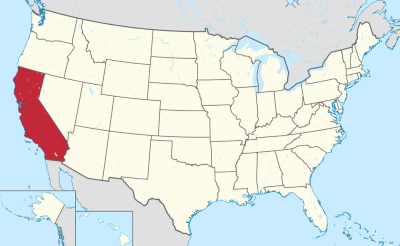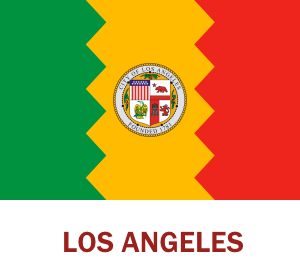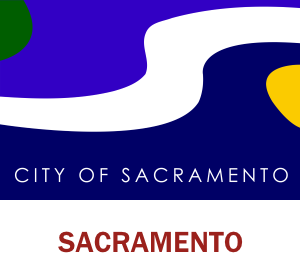Here you’ll find the largest list with California hosting reviews. We’ve listed all California web hosting providers with our UNCENSORED review and that of users.

Quick Facts
Internet Speed: 40 Mbps downlink; 15 Mbps uplink
Population: 39 million
Internet Coverage: 95% of residents
Main Internet Services: Cable, DSL, Fiber
Main Internet Service Providers: Time Warner Cable, AT&T, Frontier
Colocation Datacenters: 228 (prominent companies: CoreSite, Digital Realty, Colocation America)
Internet in California
According to Akamai.com, the average Internet downlink speed in California is 40 Mbps and the average uplink speed is 15 Mbps.
In 2016, the population of California was 39 million. Over 95% of residents have access to the Internet, especially broadband connections.
Main Internet services provided in California are the following:
– Cable – over 90% coverage
– DSL – over 80% coverage
– Fiber – less than 20% coverage
Main Internet Service providers located in California are as follows:
– Time Warner Cable (Cable) – over 85% availability
– AT&T (DSL) – over 80% availability
– Frontier (Fiber) – less than 15% availability
Gigabit Internet in California
Gigabit Internet is available across select areas in California. ISPs such as Comcast and AT&T provide gigabit services in select cities, such as Sacramento and Los Angeles, with further expansion plans in the entire state by 2020. However, subsequent plans are heavily capped, usually to around 2TB per month, and customers may incur additional charges for exceeeding this limit. Other important cities such as San Francisco do not currently have gigabit Internet, mostly due to the underdeveloped local infrastructure, and the monopolies that have struck roots in recent years.
Colocation Datacenters in California
According to datacentermap.com, there are currently 228 colocation datacenters located in California. Most datacenters are located in Los Angeles (70), closely followed by Santa Clara (30) and San Francisco (20). The remaining facilities are distributed across some ten cities and other regions, such Emeryville and Fremont.
Major colocation providers located in California are as follows:
– CoreSite
– RackAlley
– Turnkey Internet
– Digital Realty
– Colocation America
Prominent Colocation Providers & Datacenters – Digital Realty
One of the biggest colocation providers located in California is Digital Realty. One of their largest facilities is located in El Segundo, Los Angeles, and provides wholesale and retail colocation services to a wide array of local, national, as well as international customers looking for a strong presence in the West Coast. This 135,000-square-foot facility features two separate power feeds, in addition to two separate substations, redundant UPS power equipment, and two fiber entry points to the building. The datacenter has access to a wide variety of exchanges and networks, including connectivity to over 100 provider networks, multiple Internet Exchanges, Open IX Peering Exchange and Ethernet Exchange. Additionally, the facility is interconnected with over 40 Digital Realty-owned datacenters within North America.
CoreSite Datacenters
Another important colocation provider located in California is CoreSite. They own two facilities located in the business district area of Los Angeles, with a combined square footage of over 550,000. The datacenters specialize in providing wholesale and retail colocation services, in addition to miscellaneous disaster recovery and backup solutions for redundancy purposes. The datacenters feature more than 500 customers, including domestic and international carriers, enterprises, cloud computing providers, media and entertainment firms, along with many others.
Colocation Market in California
California is one of the most thriving colocation markets in the United States, particularly Northern California, which comprises Silicon Valley and the Bay Area. According to a recent report provided by 451 Research, the Silicon Valley area is home to nearly 2.6 million square feet of commissioned space, which amount to well over 343 megawatts of commissioned power. This places the local market on the second spot, trailing only Northern Virginia. Facilities built in the area are state-of-the-art, and so is the technology used by them.
Costs for Colocation
However, all these advantages do come at a considerable cost. Even though the local colocation market ranks second in the United States, it also ranks inevitably in the top 10 most expensive markets, even more expensive than Northern Virginia. According to jll.com, the average power rate can cost as much as 14.5 cents per hour in Northern California, whereas in Northern Virginia, it usually remains stable at only 12 cents per hour. At the opposite end of the spectrum lay states such as Texas, where prices do not usually go upper than 5 cents per hour.
Demand for Colocation
California is a large hub for commerce, finance, healthcare, and retail industry fields. Much of the demand is driven by local companies, but a large percentage is also driven by companies coming from other surrounding markets, including but not limited to Nevada, Arizona, Utah, Idaho, as well as Oregon, which are not as developed as California in terms of colocation.
Geographical Disadvantages
However, a huge disadvantage that discourages many companies to build in the area is the state’s high risk for natural disasters. Southern California is particularly problematic when it comes to risks for earthquakes, wildfire, floods, tsunamis, landslides or otherwise any other coastal changes.




